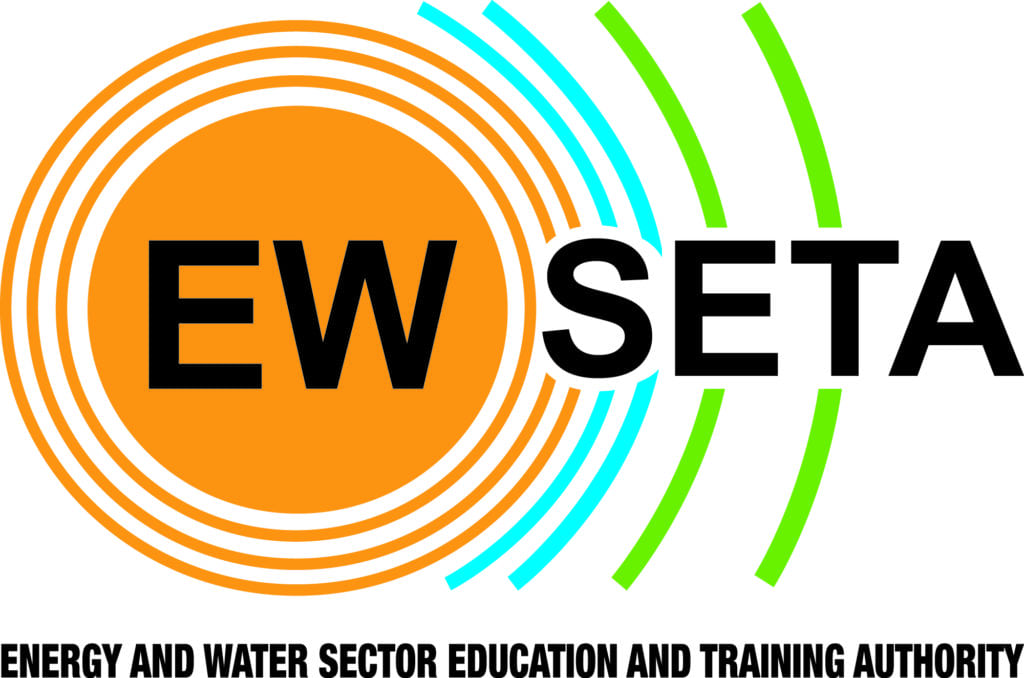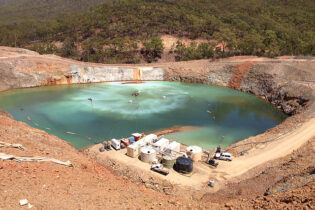Mpho Mookapele, acting CEO of the EWSETA, and, notably, the overall winner of the South African Institute of Chartered Accountants’ Top 35-Under-35 2019 Competition, met with Water&Sanitation Africa to talk about the role the EWSETA plays in driving skills within two of the country’s most critical sectors.
Driving skills development in South Africa is the responsibility of numerous stakeholders, which includes government at national, local and provincial level; public and private training providers; employers and industry; and, very importantly, South Africa’s 21 Sector Education and Training Authorities (SETAs). The Energy and Water SETA (EWSETA) is responsible for the implementation of the National Skills Development Plan (NSDP) 2030 within the water and energy sectors.The role of SETAs in South Africa’s skills development landscape is one that many people are still unsure of. Very briefly, what does the EWSETA do?
MM Many people mistakenly believe that the EWSETA is a training provider, which is not the case. To deliver on our mandate, we are required to: register and establish learning programmes; approve Workplace Skills Plans (WSPs) and Annual Training Reports (ATRs); disburse mandatory grants to levy-paying employers and discretionary grants to employers, skills development providers, public education and training institutions, learners, NGOs, CBOs, cooperatives and worker-initiated programmes; as well as promote learnerships, internships, apprenticeships and other training programmes.If you were to identify the top three skills challenges facing the water sector, what would they be?
The sector is characterised by an ageing workforce – approximately 14% being older than 55 – which contributes to hard to fill vacancies. Another challenge is a severe lack of requisite technical skills both within the artisan environment and high-level professionals. Finally, the majority of graduates do not possess practical workplace experience, which is a key success factor for theseyoung people.
How does the EWSETA respond to these challenges?
There is no easy answer to this question; however, if I were to identify two critical success factors, the first would be research into the sector with a view to determining how the EWSETA can most effectively respond to the skills shortages within the boundaries of limited financial resources. Our approach needs to be a ‘smarter thinking – greater impact’ one. The second is employer participation in our projects and programmes.What sort of employer participation does the EWSETA receive?
Not enough! We have placed focus on mobilising our employer base over the last 12 to 18 months and while we have seen some growth in employer participation, there is still extensive room for improvement. In the next few months, the EWSETA will be hosting a series of industry collaboration sessions at various centres around the country. We are inviting the relevant provincial governments to join us at these events with a view to establishing dialogue and kick-starting cooperation that will see the EWSETA, employers and provincial government structures working together to drive skills development within the context of the Provincial Growth Development Strategy in each province.
To many, accessing SETA funding is a topic that is shrouded in mystery. How does an employer access funding?
Employers can access two types of funding. The first is mandatory grant funding that a registered employer can access by submitting an annual WSP and ATR by 30 April each year. In fact, during the months of February and March, the EWSETA will be hosting a series of Skills Development Facilitator capacitation sessions around the country. These workshops will assist organisations with the nitty-gritty of the WSP and ATR process. The details of these workshops will be made available on our website. Employers who submit a WSP and ATR that are approved by the EWSETA will be eligible for mandatory grant funding. Employers who qualify for mandatory grant funding are also eligible to apply for discretionary grant funding. Each year, we advertise our discretionary grant funding window in the media, on social media, on our website and through direct communication with our registered employers. This is one area where we really want our employers to step up to the plate and submit proposals for discretionary grant funding, as it is here that employers can really open up their places of work as places of training. For more detailed information, I urge interested employers to visit our website and download the brochure entitled ‘Driving Skills Development – The Role of Employers and Partnerships’. This brochure includes a detailed explanation of the WSP and ATR process.You mentioned research earlier. What role does research play in the activities of the EWSETA?
SETAs are required to facilitate the delivery of sector-specific skills interventions that assist in achieving the goals of the NSDP 2030. It is, therefore, critical for the SETA to develop a Sector Skills Plan (SSP). The key objective of the SSP is to provide a plan of action and direction for skills development in the energy and water sectors. The EWSETA aims to support objective and informed decision-making for skills development through research. The research findings inform the sector skills strategy and guide the SETA in terms of focus of skill development projects and grant allocations. For example, our SSP determines our top priority skills in the sector and for the water sector, wastewater and reticulation skills appear annually. But our research also indicates that skills in other emerging areas of the water sector are also important, such as water resource management, water scarcity and security, as well as the water-energy-food nexus. So when the water sector applies for discretionary grant funding, we would like to see more innovative projects other than just wastewater and reticulation. If any employers in the water sector wish to participate in the provincial industry collaboration sessions you spoke of, who should they contact? They can email our marketing and communications manager Elfrieda Tyrer at elfriedat@ewseta.org.za.Any closing comments?
There is a great deal to be done and we cannot possibly do it alone. While our Strategic Plan, Annual Performance Plan and SSP are driven by the experienced, qualified and dedicated workforce employed by the EWSETA, it is only through the active involvement and commitment of our many stakeholders in the sector that we will see a skills development shift within the water sector.
- 32 Princess of Wales Terrace
- Sunnyside Office Park, Building B
- Parktown
- Johannesburg, 2198
- +27 (0)11 274 4700
- info@ewseta.org.za
- www.ewseta.org.za







